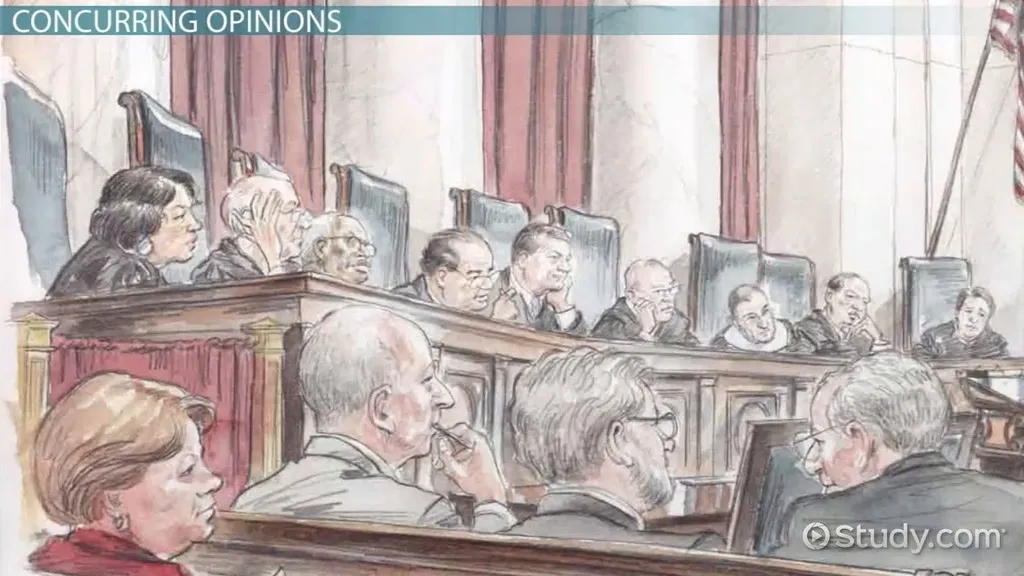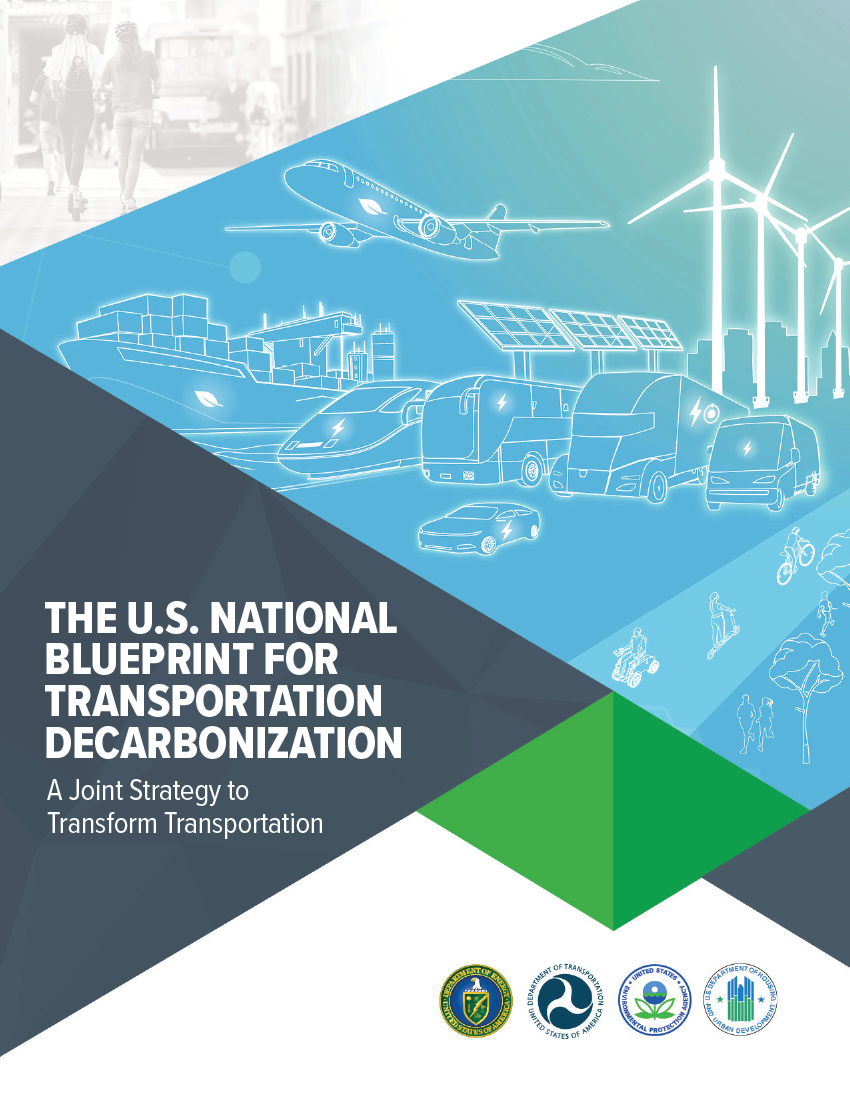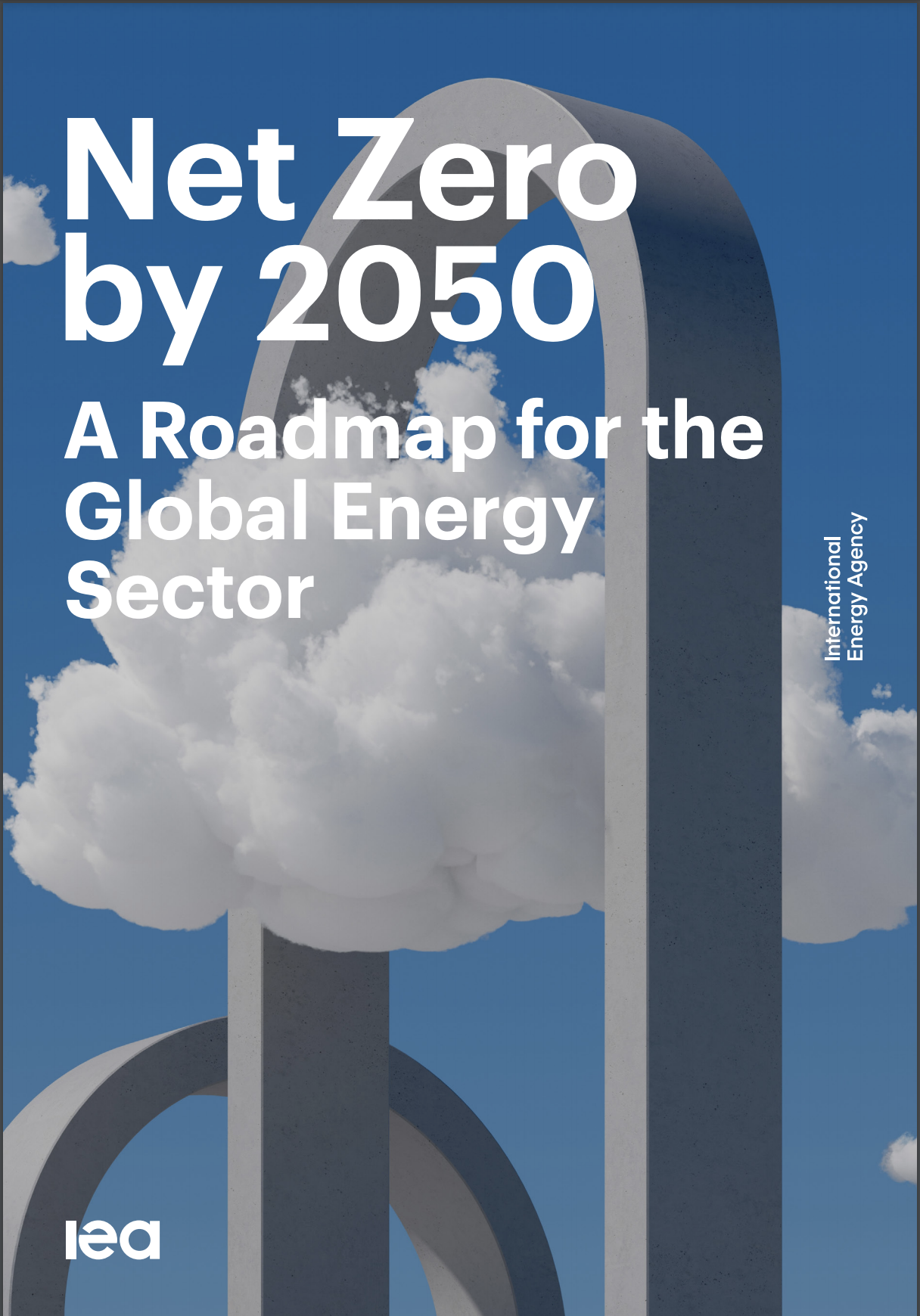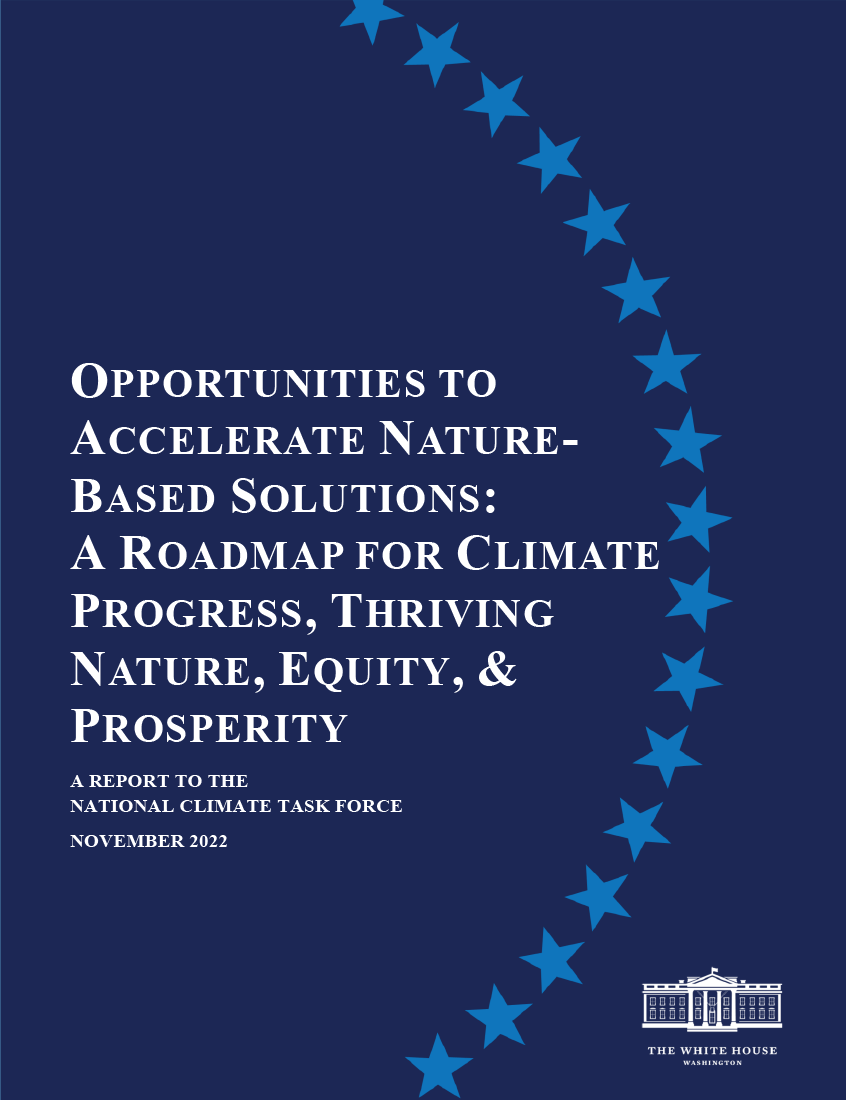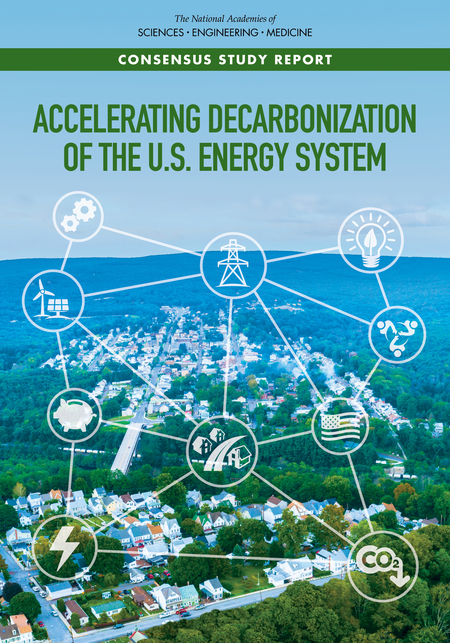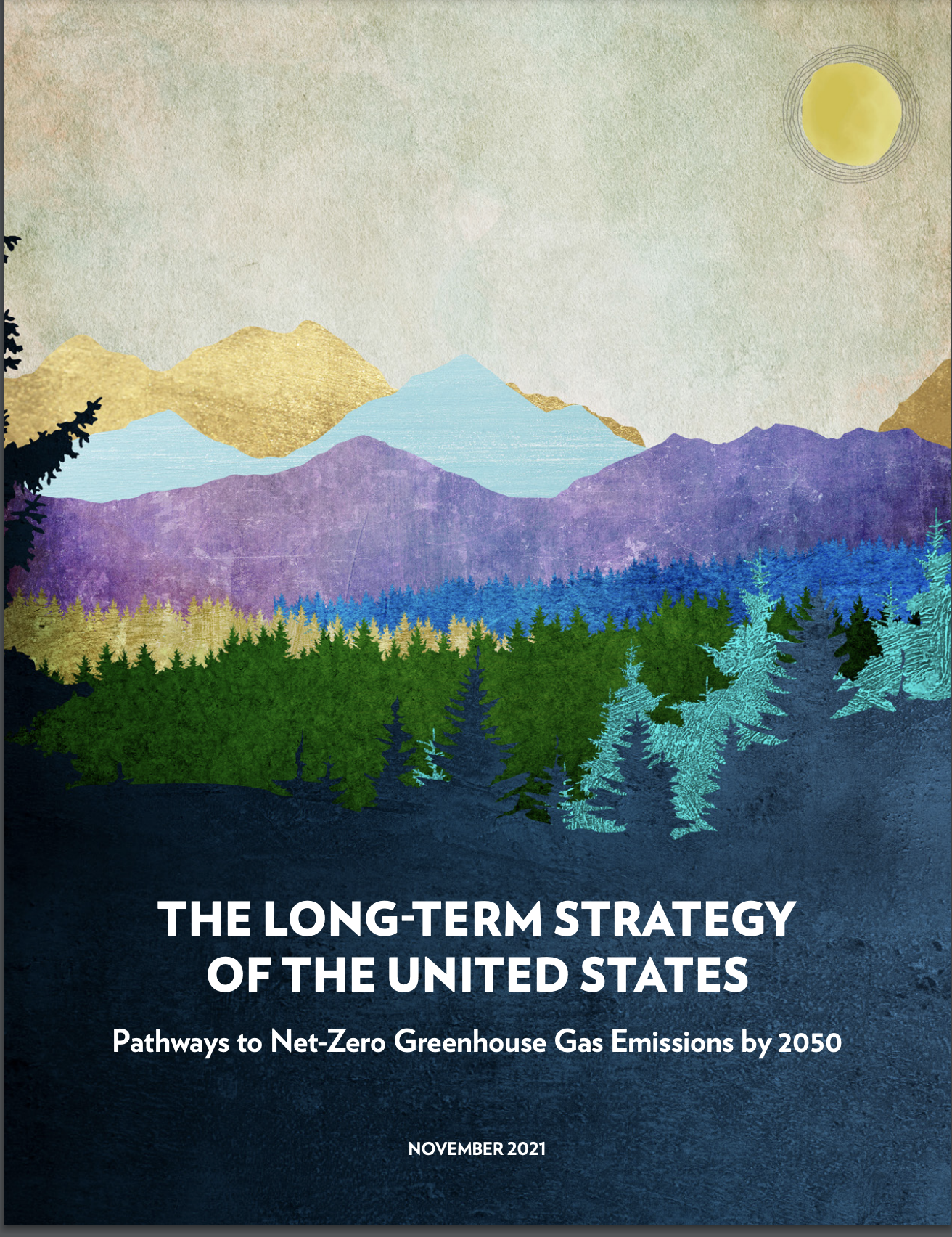Presidential Climate Action Project Reports
Democracy on trial: global crisis & elections
In the nearly 250 years since the United States’ Founders wrote the Constitution, freedom and “God-given rights” in America have been subjected to profound stresses. But the world’s oldest living democracy has survived. When stress reveals weaknesses and flaws, our tradition in the U.S. has been to learn from and fix them.The Republic has prevailed despite civil war, the Great Depression, two major oil crises, two world wars, a couple of pandemics, and periods of intense division and dissent. More than one million Americans have died in democracy’s defense.
The question today is whether it will survive a presidential election this November.
America’s Founders anticipated that tyranny would eventually challenge democracy. Thomas Jefferson warned: “Experience hath shewn, that even under the best forms of government those entrusted with power have, in time, and by slow operations, perverted it into tyranny.” James Madison described it: “The accumulation of all powers, legislative, executive, and judiciary, in the same hands…may justly be pronounced the very definition of tyranny.”
However, the Founders couldn’t foresee that democracy’s survival in the United States and elsewhere would require nations to prevail over a crisis that threatens not only freedom and government by the governed but also the biosphere–the ecological systems and conditions on which much of the planet’s life depends. Nor could they anticipate the reverse: that our ability to prevent global warming would depend in large part on the health of democracy. Simply put, the planet is warming, and the weather is becoming increasingly violent because of greed. Rich and powerful industries—particularly the fossil energy sector—stubbornly (and some say criminally) refuse to put people and the planet above their profits.
The ability to stop climate-altering pollution depends on whether the people—not rich and powerful special interests—are ultimately in control. Left unmitigated, the social, economic, and environmental effects of climate change create ideal chaotic conditions for authoritarians to move in and take control.
As we know, the threat to democracy this year goes well beyond the United States. Over 60 countries and 4 billion people will participate in elections during a wave of ascendant authoritarianism and declining global freedom. As one journalist said, “We will know whether democracy lives or dies by the end of 2024.”
Because climate change is global, so must be the solutions. But we must wonder whether governments’ failure to confront climate change adequately is in part due to the powerful’s willingness to allow conditions to deteriorate until citizens accept strongman rule.
The better alternative is governments and leaders who invoke our best impulses, aspirations, and energies. We must mature our vision of democracy and its laws to include the rights of the poor as well as the rich, the rights of posterity as well as the living, the rights of nature as well as people, and the fair distribution of costs, risks, and benefits within and between generations.
Considering the urgency of action, we must confront climate change with our current political economy, even as we accomplish system change. Our north star should be to escape the illusion that humanity can and must dominate nature, that technology can compensate for bad behavior, and that we can solve problems with the same values and paradigms that created them.
In this century, we must achieve, and in centuries to come, we must sustain a benign symbiotic relationship with the natural world, even as we venture into space and into capabilities we have not yet conceived. For nearly 250 years, America has considered itself a “shining city on a hill” and an inspiration for the rest of the world to adopt and defend governments of, by, and for their people. At the moment, its lights have dimmed. The November election in the U.S. will determine whether America powers them up again.
But the global goal is not one well-lit nation on a hill in a world of darkness. It’s a world where the lights of freedom and democracy illuminate the darkness everywhere.
Doing the right thing for nature
The European Council has done the world a substantial service by approving a law to restore the continent’s damaged ecosystems.
Why the world? Because the EU’s new Nature Restoration Law sets an example other nations should follow. In degrading nature, we have degraded ourselves – our health, the quality of our lives, and the connections with our roots.
Besides, healthy ecosystems provide civilization with vital services at no cost. Failing to restore those services would be like leaving a trillion-dollar gift unopened.
Actually, the gift is worth much more. Ten years ago, researchers led by environmental economist Robert Costanza estimated that just 17 key ecosystems provided civilization with services worth $145 trillion annually. Unfortunately, nations sacrificed as much as $20 trillion in services by degrading lands with deforestation, urbanization, and agriculture.
The damage has been extensive in Europe, where more than 80 percent of habitats are in poor condition and one in three pollinators are in decline. The new law sets legally binding goals for member countries to restore at least 20 percent of their land and sea areas by the end of this decade, and all damaged ecosystems by 2050.
In the process, the European Union will reap a wide variety of benefits. They will include nature’s ability to remove carbon dioxide from the atmosphere and make human settlements more resilient to global climate change. For example, wetlands and reforested watersheds will reduce floods as well as absorb CO2, recharge groundwater, and provide wildlife habitat.
In cities, permeable surfaces and green spaces reduce the cost of stormwater controls by absorbing rain where it falls. Urban forestry lowers inner-city temperatures, conserves energy, and saves lives during heat waves. Flowering plants that beautify cities attract and nourish the pollinating insects on which agriculture depends.
Barcelona, Edinburgh, Verona, and Vitoria-Gasteiz already are members of a growing Biophilic Cities Network, based on the work of the late scientist and naturalist Edward O. Wilson, who advocated closer contact between people and nature. Studies show such contact reduces stress, which emphases nature’s reintroduction to add beauty and services while giving residents closer contact with nature. Studies show that contacts improves mood, reduces stress, and is good for overall health.
The economic benefits can also be substantial. Researchers in the United States found in 2015 that ecosystem-service restoration had created 221,000 jobs and $24.5 billion in economic benefits, along with $1 billion in local and $2 billion in national tax revenues. The World Resources Institute calculates that every Euro invested in restoring degraded lands returns 30 Euros in economic benefits.
Writing in Meer last fall, I proposed that all nations join a decades-long campaign to restore the natural systems we’ve degraded and destroyed, often thinking that technology could do a better job. The philosophy of controlling floods rather than avoiding them has been a prime example. To accommodate people with the poor sense to build their homes in the paths of rivers, then built countless dams, levees, and other modifications to keep rivers out. The simpler solution was to keep people out of floodplains so rivers could do their jobs by using their meanders, wetlands, and floodplains to spread out, slow down, and control their destructive force. People could build beyond their reach.
Instead, our legacy is an estimated 1.2 million dams in 36 European countries, half of them abandoned, many past their useful life, and virtually none built to handle the precipitation events we see today because of climate change.
In 2020, the European Environment Agency reported that human-made flood barriers have degraded up to 90 percent of floodplains. Euronews reports that more than 10,000 structures built to control rivers already have been removed in the U.S. and Europe to restore the health of riverine ecosystems.
Europe’s new Nature Restoration Law is the latest development in a growing movement to recognize that nature and species have their own inherent rights, including the right to life. As of 2020, 39 countries had established nature’s rights in their constitutions, treaties, court decisions, and laws.
“They represent a new wave of nature and animal rights movements gaining traction,” the Guardian reports, “amid frustration over humanity’s ultra-exploitative relationship with other species and growing concern about the shortcomings of the technology-and-markets approach to the climate crisis.”
Even as we develop artificial intelligence and the means to settle Mars, we must maintain our close connection with the natural world on Earth. It nourishes our bodies, minds, hearts, and souls. And as David Attenborough warns, “What humans do over the next 50 years will determine the fate of all life on the planet.”
The Trump Verdict Helps Stabilize American Politics
Many years ago, a freshman congressman wondered why House debate droned on over a bill that had already been thoroughly discussed. Veteran Rep. Morris Udall explained, “It is true that everything has been said, but not everyone has said it.”
Columnists and editors already have written nearly everything worth saying about Donald Trump’s conviction last week on 34 felony charges. Now comes the second wave: comments on the commentary.
One of the initial reactions stands out in particular: The editorial board of the august Wall Street Journal worries that the verdict “inaugurates a new and destabilizing era for American politics” and that “the nation might soon regret this rough turn.”
Really? America took a rough turn into instability nearly a decade ago with Trump’s candidacy and election as president. Our divisions have deepened and hardened ever since as Trump legitimized militant, racist, and misogynistic fringe groups, violated presidential norms, undermined respect for our institutions, and provoked violence up to and including a deadly insurrection.
American politics is destabilized because our justice system and federal checks and balances have been unwilling to hold him accountable until now.
Trump still threatens other Republicans with ending their careers or physical retribution by MAGA enforcers if they don’t keep kissing his ring. Cowardly members of Congress and his administration are accessories to his abuses.
The Senate could have removed Trump from the presidency twice for obvious high crimes, including his attempt to use public funds to bribe a foreign official into digging up “dirt” on Joe Biden, and his role in the January 6th insurrection.
But the Senate failed to convict him. Without respect for boundaries, Trump rules more like a mafia don than an ex or future president of the United States. He now openly aspires to be a lawless dictator who uses the justice system to punish others.
Trump’s ability to escape accountability has spread like an untreated infection to other public officials and society. Death threats have become routine against anyone who criticizes or defies him, including public officials carrying out their duties. Losing no time after his conviction, some of Trump’s militant supporters announced they are ready for violence, if he calls for it.
Meanwhile, the U.S. Supreme Court refuses to create an enforceable ethics code. Justices Clarence Thomas and Samuel Alito are not only unrepentant about their ethical lapses; they also refuse to recuse themselves from cases where they have clear conflicts of interest. Signaling that the Court is above reproach, Chief Justice John Roberts declines to meet with members of Congress to discuss it.
While we await Trump’s other trials on even more serious charges, assuming they are allowed to proceed, government leaders should take steps to improve the accountability of elected officials at all levels.
Congress should impose the same enforceable ethics code on Supreme Court justices that applies to other federal judges. If the current Congress is unwilling, U.S. Rep. Jamie Raskin has described several ways the Constitution permits Chief Justice John Roberts and other members of the Court to force biased colleagues to recuse themselves.
Raskin writes that the U.S. Department of Justice (DOJ) can force the issue by petitioning the other seven justice to require Alito’s and Thomas’s recusals. DOJ should do so since the Court already has created the appearance of favoritism for Trump by delaying its ruling on his claim that presidents are immune from prosecution.
Regarding Trump’s indictment on mishandling of classified documents, the 11th Circuit appeals court should require Judge Aileen Cannon to recuse herself because of her multiple decisions to help Trump delay his trial until after the election.
These messes confirm that justice delayed is justice denied. The victims are America’s voters, deprived of learning before November whether the Republican nominee for president is guilty of conspiracy to overturn the 2020 election and illegally mishandling some of the nation’s most sensitive secrets. Either and especially both of those acts should disqualify anyone from high public office.
For the moment, the hush-money verdict raises hopes that justice can still be fairly and properly administered in America despite Trump’s relentless effort to subvert it. But the test isn’t over yet. It won’t be until all of Trump’s cases have been resolved with the same professionalism, objectivity, and distinction the judge and jury exhibited in a dingy Manhattan courtroom last week.
A Speech President Biden Should Give
A fantasy: Assuming Joe Biden remains the Democrats’ presidential candidate, he steps up to the microphone and delivers the following speech.
My fellow Americans, I am speaking to you tonight because I want to be absolutely clear about my intentions in a second term as your president. I have said our country and the world are at an inflection point – a moment of great change. As someone (Buckminster Fuller) said, we will either be the architects of that change or its victims.
I am running against Donald Trump because he wants to force his warped vision of America on all of us – a vision that gives him and him alone absolute control not only of our government but of our lives. That’s what an autocrat does.
But he is not the only opponent. I am also running against a U.S. Supreme Court that is out of control, serving a radical right-wing agenda as a gift to oligarchs who would buy the presidency for the radical right.
I am running against a Republican Congress that no longer serves you. With very few exceptions, the 268 Republicans in the House and Senate have bent their knees and capitulated to Trump. With no voter mandate or legal license to do so, Trump has effectively taken over as Speaker of the House and minority leader of the Senate. This also is what autocrats do.
We have paid too little attention to the fact that 147 Republicans in Congress joined Trump’s attempt to overthrow the 2020 election by voting against certifying my victory. Many are still in Congress and running for reelection this year. Under the 14th Amendment, they should be banned from public office for violating their oaths to defend the Constitution, yet they remain unpunished.
But I am focused on the future now. We have a lot of work to do in the next four years. We must lower prices and improve the economy, narrow the wealth and income gaps, make sure that every eligible voter can exercise that right, restore women’s right to control their bodies, guarantee equal pay for equal work, restore the opportunity society, and confront global climate change, which is destroying homes and communities and raising the cost of insurance from coast to coast.
One of my regrets about the presidential debate was that I gave too little attention to climate change and environmental protection because these are existential issues on which Donald Trump and I are diametrically opposed. He still thinks global warming is a scam. He would undo all I have done to fight this peril. He did the same to President Obama’s climate plan and rescinded more than 100 environmental rules as president.
Yet while we debated in a television studio, the Associated Press reported that fires, tornadoes, and extreme winds were causing “havoc and destruction across the United States.” Willful ignorance, denigration of science, and denial will only allow weather disasters to become much worse.
There is enormous work to do overseas, too. We must continue to build and strengthen NATO and help Ukraine defend itself against Putin’s illegal invasion. We must help Israel and Palestinians reach a sustainable peace. We must renew the world’s commitment to eliminating nuclear weapons and stand up against tyrants rather than relishing photo ops with them.
But most of all, we must cure the virus of division and intolerance that infects our country. We must restore the social contract of mutual respect and civility. We must defeat the conspiracy to overturn democratic rule and freedoms. We must stop radicals, extremists, and haters from ripping the fabric that makes us one nation under God. We must send those who advocate the violent overthrow of our government back into the holes from which they came.
If Donald Trump wins this election, the American people can count on this: He will lie to you, divide you, and make you afraid every day of one wild conspiracy or another. That’s what he did the last time he occupied the Oval Office and what he has done nearly every day since. He will commit outrages just to bask in the attention. He admits that he’ll turn the federal government’s powers, including the armed forces, into his personal weapons of retribution. He will invite his MAGA militia to terrorize the families of anyone who dares oppose or criticize him because this is what autocrats and despots do.
Unless we intervene, the United States Supreme Court will continue to support him. It will use its power as the nation’s final legal authority to tighten the noose of radical conservatism around our necks. It has already begun. In the last year alone, the Court’s conservative supermajority legalized the bribery of public officials, crippled the EPA’s power to control pollution, put state governments in control of women’s bodies, and ruled that the president of the United States can commit crimes with impunity.
I will make this promise. If you reelect me and give Democrats control of Congress, I will ask for and use my authority to restore the ideological balance of the Supreme Court by adding four more justices. I have resisted this in the past. But there is no doubt now that the Supreme Court is the greatest threat to our democracy. Unless the legislative and executive branches of government fulfill their obligation to check the Court’s excesses, ultra-conservative justices will control the court for decades to come. They have taken away a fundamental right of women, and they will come for yours. America will never again be the nation the Founders intended.
With a willing Congress, I will restore the Voting Rights Act and make it easier, not harder, for every American to exercise their rightful power. I will urge Congress to approve a constitutional amendment to eliminate the Electoral College, so presidents are elected by popular majority. I will continue working with and leading the international community to restore climate stability, protect biodiversity, and repair the damage we have done to ecosystems. I will defend our quality of life against corporate greed.
To those who say corporations should care only about profit and call environmental protection woke, I say this. Our God-given rights of life, liberty, and the pursuit of happiness mean little if the air we breathe, the water we drink, and the food we eat are contaminated with deadly pollution and chemicals.
This is not empty rhetoric. Four in 10 Americans still live where it is dangerous to breathe. As many as 200,000 Americans die prematurely from causes associated with air quality. More than 250,000 Americans live in so-called sacrifice zones where fossil-fuel and chemical pollution have raised the risk of cancer to unacceptable levels. And more than a third of the species and ecosystems in the United States are at risk of disappearing.
Doing something about these problems is not woke. It’s awake. However, the Supreme Court is methodically attacking our ability to solve them. And Donald Trump’s response is illustrated by his reported promise to oil executives that he will give them whatever they want if they give him $1 billion to defeat me.
So yes, the quality of our lives, the decency of society, and the survival of democracy are on the ballot in November. Yet my opponents would make this election about my age.
I do not claim that Democrats are perfect. But I promise we will not violate the Constitution, our ethical obligations, or the public trust. We will not give in to tyrants, lawlessness, or gridlock.
If you give us control of the White House and Congress, we will put things right. We will put government, democracy, and America back on course.
I have been in politics and public service for 50 years, and there has never been a more important mission than this.
House Select Committee on the Climate Crisis
Former Speaker of the House Nancy Pelosi created a House Select Committee on the Climate Crisis during the 116th Congress to recommend how Congress can “enable an inclusive net-zero economy” by 2050. The Committee’s report, based on public hearings, recommendations from the public, and inputs from other congressional panels, contains a comprehensive set of goals and legislative proposals to achieve them.
Roadmap to Reaching Zero Embodied Carbon in US Federal Building Projects
The U.S. government is the largest single purchaser of building construction materials in the United States. The Rocky Mountain Institute developed this roadmap on how the government can reduce the cradle-to-grave embodied carbon emissions in public building projects over the next 30 years. It also contains recommendations on how the government can facilitate a larger movement to decarbonize the building industry and industrial supply chains.
The U.S. National Blueprint for Transportation Decarbonization
The U.S. Department of Energy signed an agreement with other federal agencies in 2022 to accelerate the decarbonization of the transportation sector. The agencies developed this blueprint and described it as a “comprehensive strategy for decarbonizing the transportation sector that will help guide future policy decisions, as well as research, development, demonstration, and deployment in the public and private sectors.”
Accelerating Decarbonization of the U.S. Energy System (2021)
The world is transforming its energy system from one dominated by fossil fuel combustion to one with net-zero emissions of carbon dioxide (CO2), the primary anthropogenic greenhouse gas. This energy transition is critical to mitigating climate change, protecting human health, and revitalizing the U.S. economy. To help policymakers, businesses, communities, and the public better understand what a net-zero transition would mean for the United States, the National Academies of Sciences, Engineering and Medicine convened a committee of experts to investigate how the U.S. could best decarbonize its transportation, electricity, buildings, and industrial sectors.
Opportunities to Accelerate Nature-Based Solutions: A Roadmap for Climate Progress, Thriving Nature, Equity, & Prosperity
Most roadmaps to zero-carbon futures focus on clean-energy technologies. This one focuses on nature-based solutions to climate change. It was issued by the White House following President Biden’s executive order on restoring forests, protecting coasts and marine ecosystems, reducing flooding, protecting biodiversity, and taking other nature-based steps to address climate change and its impacts. The roadmaps contains “compelling evidence that nature-based solutions are innovative, and that they are highly complementary to necessary technological solutions.” It makes the point that “Nature-based solutions and technology can be powerful allies” and “the climate crisis demands that we deploy all available, proven, science- and evidence-based solutions.”
Accelerating Decarbonization of the U.S. Energy System (2021)
The world is transforming its energy system from one dominated by fossil fuel combustion to one with net-zero emissions of carbon dioxide (CO2), the primary anthropogenic greenhouse gas. This energy transition is critical to mitigating climate change, protecting human health, and revitalizing the U.S. economy. To help policymakers, businesses, communities, and the public better understand what a net-zero transition would mean for the United States, the National Academies of Sciences, Engineering and Medicine convened a committee of experts to investigate how the U.S. could best decarbonize its transportation, electricity, buildings, and industrial sectors.
The Long Term Strategy of the United States
The White House has issued its long-term strategy for the United States to achieve a net-zero carbon economy by 2050. That goal requires actions by every sector of the economy, it says. “There will be many challenges on our path to net-zero that will require us to marshal all our ingenuity and dedication. But it can and must be done.”
Addressing the climate crisis requires immediate and sustained investment to eliminate net global greenhouse gas emissions by mid-century—and this presents a transformational opportunity for the United States and the world. Investing in the clean technologies, infrastructure, workforce, and systems of the future creates an unprecedented opportunity to improve quality of life and create vibrant, sustainable, resilient, and equitable economies.
As we undertake this global transformation, the United States and other major economies must act quickly to keep a safer climate within reach. Across the United States and around the world, climate change is already harming communities—particularly the most vulnerable that are least equipped to cope, rebuild, and adapt.
Wildfires, storms, floods, extreme heat, and other climate-fueled impacts are causing deaths, injuries, degraded health, economic hardship, and damage to the earth’s ecosystems—all from warming of only roughly 1.0oC. Failure to immediately curtail emissions will condemn the world to nearly triple that level of warming, unleashing far more frequent and severe climate impacts and far more extreme downside risks.
To win, Biden and Democrats must go all-in against Trumpism
As President Biden fights to stay in the race for a second term, his message needs to change. He should not just run to keep Donald Trump out of the White House — he should run to purge Trumpism from Congress and the U.S. Supreme Court.
Biden should push all his chips to the center of the table and prove his mettle by leading a counterrevolution against the MAGA horde.
As we all know by now, most voters are unhappy with the federal government and democracy. But the government won’t be fixed and democracy won’t be saved while extreme conservatives hold a supermajority in the Supreme Court or control either house of Congress. Trumpism has contaminated all three.
Over the last decade, the GOP has ceased to act like a valid political party; instead they have become a spineless cabal of Trump sycophants. It was Trump who cajoled Republicans in the House to launch a bogus impeachment investigation of Biden. It was Trump who scuttled the long-awaited bipartisan bill to address the border crisis. And it’s Trump whose proverbial ring Mike Johnson )R-La.) must kiss to remain Speaker of the House.
These conditions would hamstring Biden’s plans for a second term. If he tries to stretch the limits of executive authority, conservatives on the Supreme Court will rein him in.
It is not enough for Biden and Democrats to say they’ll save democracy. They must tell the American people what they would do if voters gave them a trifecta — control of the House, Senate and White House — for at least the next two years. They must promise to do what’s necessary to defend democracy from the far right’s attacks and stop Trump from weaponizing Congress for his personal political and financial benefit.
They need to have specific ideas to revive the people’s faith — and then they must follow through.
To start, the Supreme Court’s conservative majority will rule for many years to come without an intervention. Congress could authorize Biden to restore the court’s ideological balance by appointing four new justices. Biden has resisted this, but the need has never been more apparent.
The court has opened the door wider to bribery and corruption by allowing corporations to give unlimited money to election campaigns. To make matters worse, despite scandals in which two justices accepted gifts from billionaires, the court has just ruled that corporations and wealthy individuals can give public officials “gratuities” after the officials have done them favors. Congress could fix that ridiculous decision by imposing a strict ethics code on the court, preserving the limits in existing federal ethics rules, and using its “jurisdiction stripping” power again to put campaign finance limits outside the court’s reach. It can use the same power to restore women’s reproductive rights — and make those rights off-limits to the court.
Congress could also codify the Chevron doctrine that the court just decimated and limit the application of the “major questions doctrine” so federal agencies can continue using their expertise and discretion to administer environmental protection and other laws with appropriate rules and regulations. And Congress could repair the court’s damage to the Voting Rights Act, and voting rights in general, so that every eligible voter finds voting easier — for instance, by making Election Day a national holiday. Congress could also approve a constitutional amendment that eliminates the Electoral College and elects presidents by a majority of the popular vote.
Democrats can continue to protect the Affordable Care Act from Republican attacks and defend the Inflation Reduction Act’s investments in clean energy, Biden’s gun safety improvements, his expansion of health care for veterans, the CHIPS Act, U.S. support for Ukraine, criminal justice reform and other accomplishments over the last four years. They can defend Social Security and Medicare from Republican plans to lower taxes for the top 1 percent of earners.
Biden and Congress could inoculate government from white Christian Nationalism and its aim to erase the lines between their religion and state. The right to choose one’s beliefs is fundamental to freedom. People must answer for their choices to conscience or God, not government.
Finally, Biden could appoint a presidential commission to identify the issues behind the American people’s lack of confidence in the federal government, the Supreme Court, and Congress and make recommendations on how to address them.
The problems in our flawed democracy and gridlocked government are systemic. The MAGA virus has infected all three branches of the federal government. The cures must be systemic, too, beyond who occupies the White House. They require a government-wide — and hopefully a politics-wide — total purge of Trumpism.
William S. Becker is a former regional director at the U.S. Department of Energy and author of several books on climate change and national disaster policies, including the “100-Day Action Plan to Save the Planet,” and “The Creeks Will Rise: People Co-Existing with Floods.”
Climate inflation is eating your paycheck — and it’s only going to get worse
With less than four months to go until the presidential election, the economy is delivering some good news. At this point two years ago, inflation was above 9 percent. Last month, it dipped to 3 percent, while wages continued to grow.
The bad news is that a new villain has arrived on the scene. Call it “climate inflation.”
Over a generation, we’ve seen global climate change progress from science to a heated political debate and now to a hotter world. It’s become a kitchen table issue that threatens the financial as well as physical security of America’s families.
Anyone worried about rising costs of living and higher taxes should be concerned. Yet, climate change is getting too little attention in presidential campaigns, especially since President Biden and Donald Trump have diametrically opposed views. Trump and his newly named running mate JD Vance, don’t believe global warming is a real issue, while Biden deserves credit for doing more to confront climate change than any president in American history
The physical risks of climate change are indisputable. Last year alone, 28 big weather disasters (each causing more than $1 billion in damages) cost a total of $93 billion, the highest on record. Over the last decade, big weather disasters caused more than $1.2 trillion in reported damages. The actual damages were significantly higher because the government doesn’t count disasters where damages are less than $1 billion.
However, these numbers don’t tell us how climate change affects families, including its impacts on household budgets.
Take cooling, for example. It isn’t optional anymore. Last week, historic heat waves threatened the lives of more than 100 million Americans. According to the Center for Energy Poverty and Climate, the average price to cool a home will be $719 this summer, up 9 percent over last year.
Extreme weather raises food prices too. It’s one reason that orange juice cost 42 percent more in April than the year before. Because the U.S. imports about 15 percent of its foods, extreme weather elsewhere in the world affects food prices here. One study predicts that rising temperatures could increase food inflation by more than 3 percent annually in the next decade.
One of the biggest kitchen-table issues is the rising cost of home insurance as weather disasters increase. The First Street Foundation, a climate-risk research organization, says nearly 36 million homes face rising insurance costs or reduced coverage, and homes in parts of the United States are becoming uninsurable. The BBC reported earlier this year that hazard insurance premiums are “a crisis unfolding across America — along both coasts, and through the Midwest.”
The National Bureau of Economic Research says the average premium in the United States jumped 33 percent from 2020 to 2023. The National Association of Realtors says the average home insurance policy, now $2,377, will rise another 6 percent this year. But premiums will be much more expensive where climate impacts are worse. The Association says home insurance for Florida residents will average $11,759 by the end of this year.
Large insurers such as State Farm, Allstate and Farmers have already pulled out of California and Florida, and more than a dozen home insurance companies have declared insolvency since 2019. Families that can’t obtain or afford insurance may be unable to buy homes since most mortgage companies require it.



